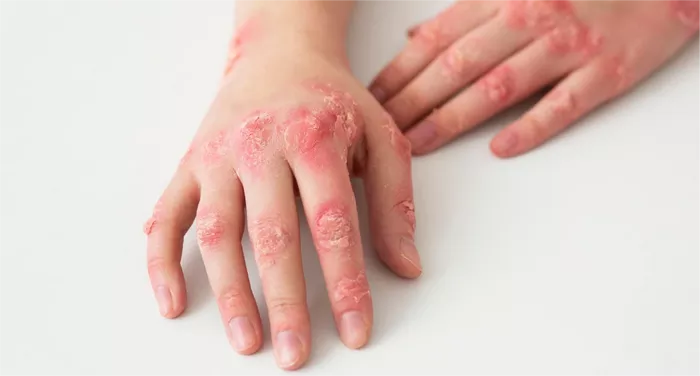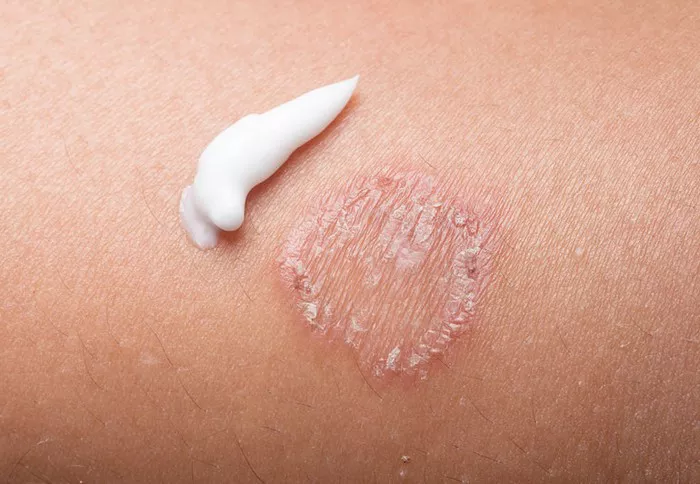Eczema is a common skin condition that causes itching, redness, and inflammation. It can appear anywhere on the body but is most commonly found on the hands, elbows, knees, and face. The constant itching associated with eczema can be very uncomfortable and frustrating. In this article, we will discuss various ways to control eczema itching, offering practical tips to help you manage flare-ups and reduce discomfort.
Understand the Causes of Eczema Itching
Before exploring ways to control itching, it is important to understand why eczema causes such an intense urge to scratch. Eczema is often triggered by environmental factors, allergens, stress, and even changes in temperature. When the skin barrier is compromised, moisture is lost, leading to dry and inflamed skin. This irritation can trigger the release of histamine, a chemical in the body that causes itching. Scratching the affected area further irritates the skin, leading to more inflammation and a vicious cycle of itching and scratching.
Moisturize Your Skin Regularly
One of the most effective ways to control eczema itching is by keeping your skin well-moisturized. When the skin becomes dry, it becomes more prone to irritation and itching. Moisturizing helps to restore the skin’s natural barrier, preventing water loss and soothing the skin.
Choose a gentle moisturizer: Look for a fragrance-free and hypoallergenic moisturizer. Avoid products with alcohol or harsh chemicals, as these can further irritate your skin.
Apply moisturizer immediately after bathing: The best time to moisturize is right after a bath or shower when your skin is still damp. This helps to lock in moisture and keep your skin hydrated for longer.
Use an ointment or cream: Ointments and creams tend to be more effective than lotions for treating eczema. They form a thicker barrier on the skin, which helps to seal in moisture.
Take Short, Lukewarm Baths
Hot water can strip the skin of its natural oils, leading to dryness and more itching. Taking a bath in lukewarm water can help soothe the skin and provide relief from itching. However, it’s important not to stay in the water for too long.
Limit bath time to 10-15 minutes: Prolonged exposure to water can worsen skin dryness.
Avoid harsh soaps: Instead of using regular soap, which can be drying, use a gentle, fragrance-free cleanser or a bath oil designed for sensitive skin.
Add oatmeal or baking soda: Colloidal oatmeal and baking soda are both known to relieve itching. Adding these ingredients to your bathwater can help soothe irritated skin.
Avoid Scratching
Although scratching may provide temporary relief, it can make eczema worse by further irritating the skin and causing breaks in the skin’s surface. This can lead to infections and scarring. Therefore, it is essential to resist the urge to scratch. Here are a few tips to help avoid scratching:
Keep your nails trimmed: Keeping your nails short can reduce the damage caused by scratching. It also reduces the risk of infection if you do scratch.
Wear soft clothing: Wearing soft, breathable fabrics like cotton can help prevent irritation from clothing rubbing against the skin.
Use a cold compress: If you feel the urge to scratch, applying a cold compress or ice pack to the itchy area can help numb the sensation and reduce inflammation.
Use Topical Treatments
Topical treatments are one of the most common ways to relieve eczema itching. These treatments can help reduce inflammation, soothe the skin, and restore the skin barrier. There are several different types of topical treatments available for eczema:
Hydrocortisone Creams: Over-the-counter hydrocortisone creams can reduce inflammation and relieve itching. They are typically safe for short-term use. However, they should be used sparingly and not on broken skin, as they can thin the skin with prolonged use.
Topical Calcineurin Inhibitors (TCIs): These prescription medications, such as tacrolimus and pimecrolimus, work by suppressing the immune system’s response, which helps reduce inflammation. They can be used in sensitive areas, such as the face and eyelids, where steroids may not be recommended.
Emollient Creams: These creams help restore the skin’s barrier and keep it moisturized. They are particularly helpful for dry, cracked skin.
Antihistamine Creams: If your eczema is triggered by allergies, antihistamine creams may help reduce itching and inflammation.
Apply Wet Dressings
For more severe eczema, wet dressings can be an effective method to help control itching. Wet wraps help soothe the skin, reduce inflammation, and lock in moisture.
How to use wet dressings: After moisturizing the affected area, soak a clean cloth in lukewarm water, wring out the excess, and apply it to the eczema-affected area. Then, cover the wet cloth with a dry layer to keep the moisture in place.
Leave the dressings on for several hours: Wet dressings can be left on for a few hours or overnight, depending on your comfort level. This technique can significantly reduce itching and inflammation.
Manage Stress
Stress is a known trigger for eczema flare-ups. When you’re stressed, your body releases certain chemicals that can make your skin more prone to irritation and itching. Managing stress is an important part of controlling eczema symptoms.
Practice relaxation techniques: Deep breathing, meditation, and yoga are all great ways to reduce stress and prevent eczema flare-ups.
Exercise regularly: Physical activity can help reduce stress levels and improve overall skin health. However, be sure to shower immediately after exercise to remove sweat, which can irritate the skin.
Get enough sleep: Lack of sleep can worsen eczema symptoms and make itching harder to control. Aim for 7-9 hours of sleep each night to help your skin heal and recover.
Identify and Avoid Triggers
Certain environmental factors and allergens can trigger eczema flare-ups and increase itching. Identifying these triggers can help you manage your condition more effectively. Common eczema triggers include:
Allergens: Pollen, dust mites, pet dander, and mold can all trigger eczema flare-ups. Using an air purifier, cleaning your home regularly, and avoiding pets may help reduce your exposure to allergens.
Heat and sweating: Hot weather and sweating can make eczema worse. Try to stay cool by wearing lightweight, breathable clothing and avoiding direct sun exposure.
Harsh chemicals: Products containing harsh chemicals, such as strong detergents or cleaning products, can irritate the skin. Opt for mild, fragrance-free products and wear gloves when handling chemicals.
Foods: Some people find that certain foods, such as dairy, eggs, or nuts, can trigger eczema flare-ups. Keep a food diary to identify any possible food triggers.
Consider Prescription Medications
In some cases, over-the-counter treatments may not provide sufficient relief from eczema itching. If your eczema is severe or persistent, your doctor may prescribe stronger medications to help control symptoms.
Oral antihistamines: For severe itching, oral antihistamines like diphenhydramine (Benadryl) can help reduce itching and improve sleep. However, these should only be used under the guidance of a healthcare provider.
Systemic steroids: For acute flare-ups, oral corticosteroids may be prescribed to reduce inflammation. However, they should only be used for short periods due to potential side effects.
Biologic medications: In severe cases of eczema, biologic medications such as dupilumab (Dupixent) may be prescribed. These medications target specific parts of the immune system and can help control inflammation and itching.
Stay Hydrated
Dehydration can worsen eczema symptoms, so it’s important to stay hydrated. Drinking enough water helps maintain your skin’s moisture balance, which can reduce dryness and itching. Aim for at least 8 glasses of water a day, and more if you live in a hot climate or exercise regularly.
Conclusion
Managing eczema itching requires a multi-faceted approach. By understanding the causes of itching, keeping your skin moisturized, using appropriate treatments, and avoiding triggers, you can significantly reduce the discomfort associated with eczema. If your symptoms are severe or persistent, it’s important to consult with a dermatologist to discuss more advanced treatment options. With the right care and attention, you can keep eczema itching under control and improve your skin’s health.
Related topics



























